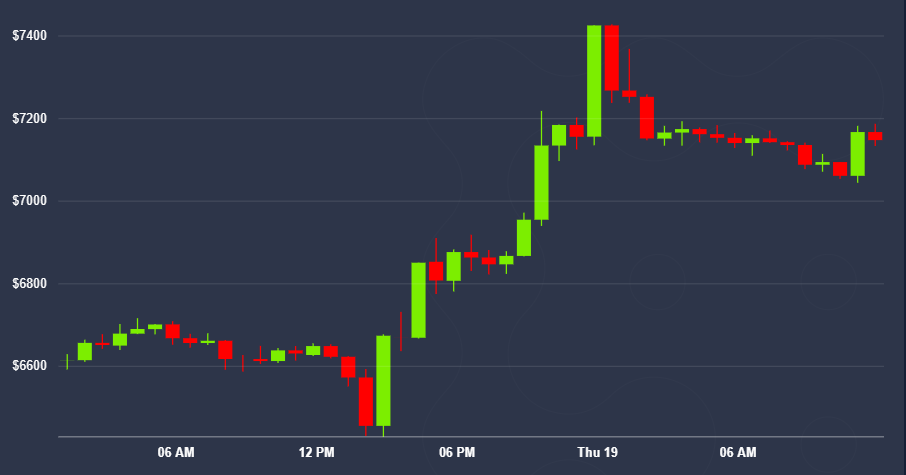U.S. SEC’s Knock From Congressional Watchdog May Not Budge Crypto Accounting Policy
/arc-photo-coindesk/arc2-prod/public/LXF2COBSKBCNHNRE3WTK2BZ7GE.png)
-
The Government Accountability Office handed the U.S. Securities and Exchange Commission another high-profile setback in its crypto policies, declaring the agency erred in not treating SAB 121 as a rule under the Congressional Review Act.
-
Crypto observers doubt Congress will overturn the policy, but the finding may echo through other legal disputes.
As the U.S. Securities and Exchange Commission (SEC) Chair keeps chasing non-compliance in crypto, his agency was slammed by the watchdog Government Accountability Office (GAO) for its own compliance failure in issuing crypto accounting standards without treating the policy as a formal rule.
So, what now? In practical terms, probably nothing much.
The agency is likely to rectify the accusation that it sidestepped the Congressional Review Act (CRA) by submitting Staff Accounting Bulletin 121 (SAB 121) to Congress, as the GAO argued should have been done when the controversial policy was issued in 2022.
Under the review act, Congress is meant to get a chance to overturn new federal rules before their ink dries. But the current Senate and House of Representatives are split between political parties, and the closely divided Congress is unlikely to agree on what to do with SAB 121, despite the goals of some Republicans.
“This sets an incredibly dangerous precedent,” said U.S. Sen. Cynthia Lummis (R-Wyo.), the lawmaker who originally requested the GAO review. “I plan to use the Congressional Review Act to block this rule in the coming weeks.”
The accounting bulletin basically instructed financial institutions that when they take in customers’ crypto assets, they should factor those assets into their own balance sheets – effectively telling banks to maintain expensive capital reserves against their customers’ digital assets.
“Ultimately, this would deter institutions and firms from offering custodial services – denying Americans access to safe and secure custody of their assets,” said Rep. Patrick McHenry (R-N.C.), the chairman of the House Financial Services Committee that oversees the SEC. “SAB 121 was drafted with zero input from prudential regulators and the public, and now Congress must step in to block this harmful rule.”
If the SEC sends SAB 121 as a “rule” to Congress under the CRA, both chambers have about two months to pass a resolution repealing it.
Meanwhile, the SEC isn’t showing signs of budging on the bulletin.
“The GAO opinion expresses its view that SAB 121 is a ‘rule’ for purposes of the CRA,” the SEC said in a statement this week. “The opinion does not otherwise affect the status of SAB 121.”
Will Congress act?
While the Republican-led House may embrace a reversal of the SEC’s push into crypto accounting, crypto insiders are saying, the Senate is controlled by Democrats who are usually sympathetic to Gensler’s SEC. And President Joe Biden is unlikely to favor bucking his hand-picked SEC chair. If Democrats rose up against the Democrat-majority SEC, a rejection of SAB 121 would mean the bulletin would be wiped in its entirety, and the agency would also be disallowed from introducing another rule that takes the same approach.
The CRA has been around for nearly three decades but had hardly been used until recent years, most notably when Republicans overturned 16 rules during the Trump administration.
As it stands, the SEC’s crypto accounting bulletin is technically nonbinding, though various U.S. industries have long argued that there’s no such thing as nonbinding guidance from federal regulators, and Republican lawmakers have waged battles in the past over agencies using guidance in place of going through the many hoops of formal rulemaking.
SAB 121 has been chasing large banks and brokers away from the crypto sector, said Paul McCaffery, who works as a managing director focusing on digital assets at Keefe, Bruyette & Woods, a banking firm that services the financial sector. When people can’t find a regulated home for their assets, they go to the unregulated firms that are more prone to disaster, he argued.
“It’s not to be underestimated how much of an industry killer this was in terms of institutional adoption,” McCaffery said. “The reversal of SAB 121 would be way bigger news to me than a spot ETF approval.”
While he doesn’t expect Congress to repeal the SEC policy, he said it’s “very exciting that at least it’s getting the focus it deserves” and that the agency is experiencing more backlash connected to what he argued was its repeated crypto “overreach.”
Legal implications
Even if Congress doesn’t come after SAB 121, the GAO’s observation could have other legal implications.
Crypto firms that have been stymied in finding suitable custodians for their assets could consider legal challenges against the regulator. And if the SEC pursued enforcement actions on this point of accounting, its targets could accuse the agency of failing to follow the Administrative Procedure Act (APA) to handle the bulletin as a full-fledged rule with proper comment periods, as the GAO’s finding would suggest was the appropriate course.
“The SEC should not have deprived the public of their opportunity to be heard pursuant to the APA’s notice and comment procedures,” Blockchain Association Senior Counsel Marisa Coppel had said in a statement after the GAO release.
So the fight over the agency’s crypto accounting views may not stop at Congress.
Edited by Daniel Kuhn.









